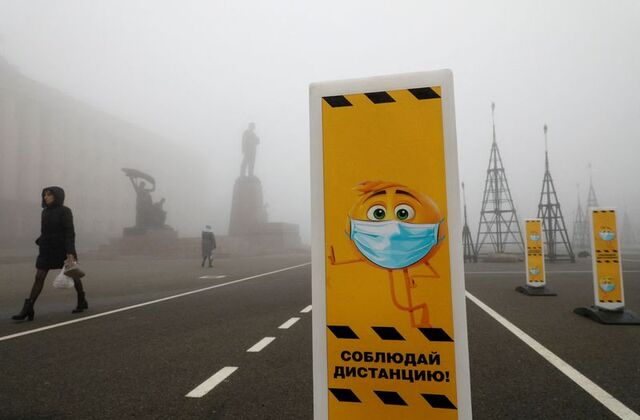WHO Europe warned in a statement today that the Omicron wave is moving east and that 10 countries in the eastern part of the region have now detected the new variant.
“Across the entire WHO European Region, we have now recorded more than 165 million COVID-19 cases to date,” said Regional Director, Dr Hans Kluge. “This remains a deadly disease, 1.8 million people have lost their lives, 25,000 in the past week. Health systems are being put under increasing strain, not least because cases among health care workers are escalating.”
He drew the attention to the east of the WHO European Region. Over the past two weeks, cases of COVID-19 have more than doubled in six countries in this part of the Region: Armenia, Azerbaijan, Belarus, Georgia, the Russian Federation, and Ukraine.
Vaccination remains the best defense against severe disease and death for all current COVID-19 virus variants circulating. However, too many people at greater risk remain unprotected: less than 40% of those aged over 60 in Bosnia and Herzegovina, Bulgaria, Kyrgyzstan, Ukraine and Uzbekistan have completed their COVID-19 vaccine series.
Bulgaria, Georgia and North Macedonia are also among those countries where under 40% of health care workers have received at least one dose of COVID-19 vaccine.
Faced with the Omicron tidal wave, and with Delta still circulating widely in the east, this worrying situation is not the moment to lift measures that we know work in reducing the spread of COVID-19, he concluded.
These measures include avoiding closed, confined or crowded locations, wearing masks when with other people indoors, improving ventilation where possible, using rapid tests to identify cases early, and making sure that health systems are well prepared to provide evidence-based treatments that we now know can reduce severe disease and death.
Looking further ahead, he repeated a message of hope. “While we can never know what new variants of the virus will emerge, several things are working in our favour. These are high levels of immunity gained through infection or, preferably, vaccination, the end of the winter season with fewer people mixing indoors, and the lower severity of Omicron among those fully vaccinated.”
The surge in Omicron cases comes at the worst possible time when the risk of imminent war is looming over Russia and Ukraine. A war would cause immense human suffering, ruin Ukraine’s economy, disrupt EU’s supply of natural gas from Russia and result in a new migration crisis for the EU.
Russia has finalised its preparations for an invasion of Ukraine but also hinted that the possibility of talks to find a diplomatic solution have not been exhausted. There is still reason for hope but no last minute initiatives to deescalate the tension and induce Russia to halt its war machine have been reported. The European Commission did not respond to a request for comment at the time of press.
M. Apelblat
The Brussels Times

